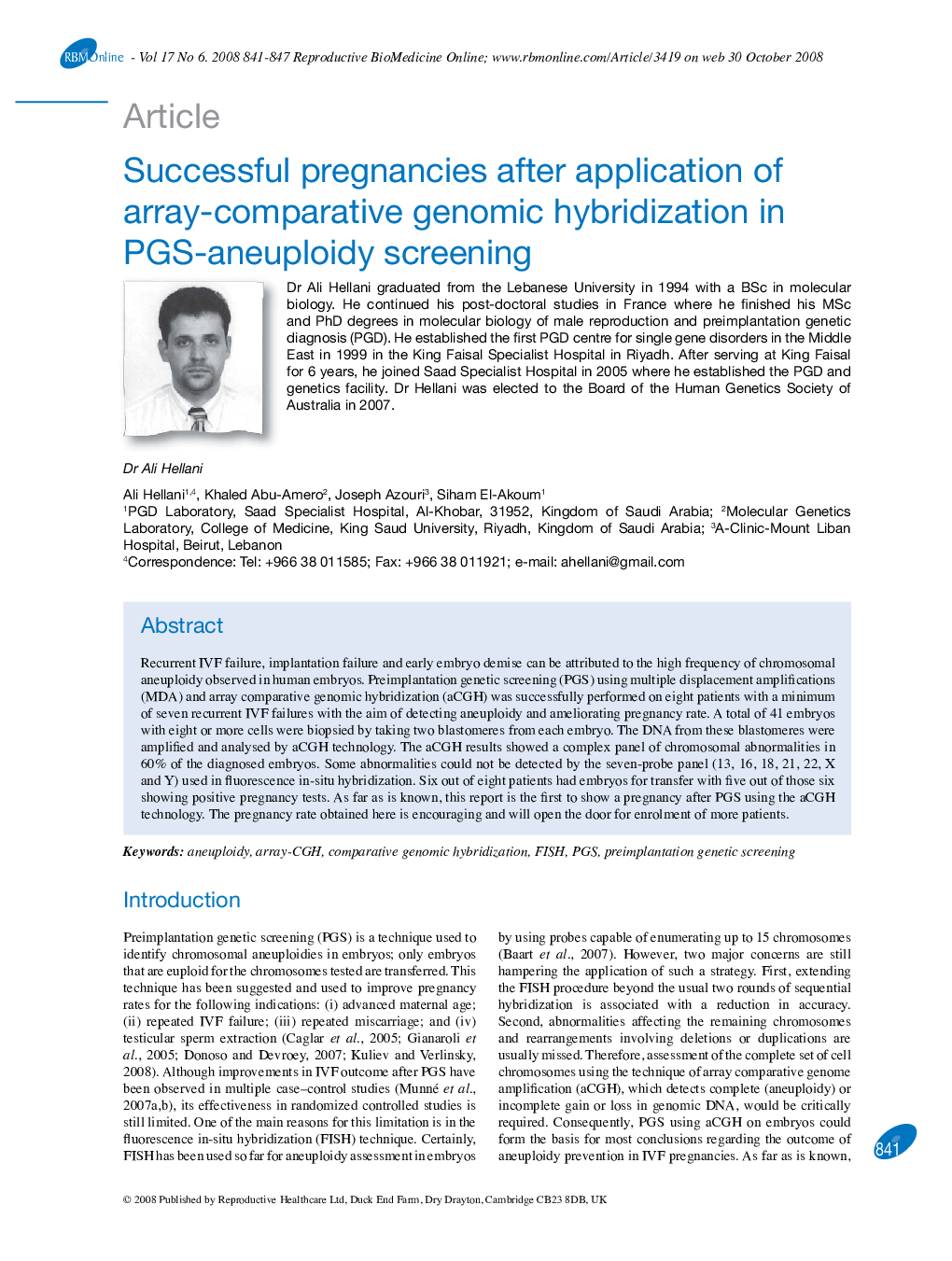| Article ID | Journal | Published Year | Pages | File Type |
|---|---|---|---|---|
| 3972311 | Reproductive BioMedicine Online | 2008 | 7 Pages |
Recurrent IVF failure, implantation failure and early embryo demise can be attributed to the high frequency of chromosomal aneuploidy observed in human embryos. Preimplantation genetic screening (PGS) using multiple displacement amplifications (MDA) and array comparative genomic hybridization (aCGH) was successfully performed on eight patients with a minimum of seven recurrent IVF failures with the aim of detecting aneuploidy and ameliorating pregnancy rate. A total of 41 embryos with eight or more cells were biopsied by taking two blastomeres from each embryo. The DNA from these blastomeres were amplified and analysed by aCGH technology. The aCGH results showed a complex panel of chromosomal abnormalities in 60% of the diagnosed embryos. Some abnormalities could not be detected by the seven-probe panel (13, 16, 18, 21, 22, X and Y) used in fluorescence in-situ hybridization. Six out of eight patients had embryos for transfer with five out of those six showing positive pregnancy tests. As far as is known, this report is the first to show a pregnancy after PGS using the aCGH technology. The pregnancy rate obtained here is encouraging and will open the door for enrolment of more patients.
